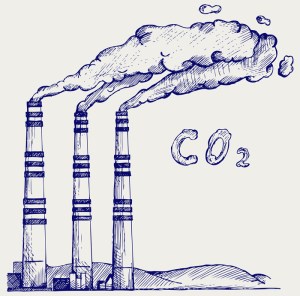In an era of fake news and overt political propaganda, it seems that truth-telling constitutes an absolution from moral criticism. While lying goes against basic moral intuitions about sincerity and transparency, choosing the path of truth is seen as commendable in and of itself. This is why, in the eyes of many liberals, publications such as the Washington Post or the New York Times, have a moral high ground over Fox News, for example. The reporters at Fox News appear to report exclusively on stories that fit their ideological projects and propose fallacious political analysis. The Post and the Times, on the other hand, report on facts and supplement them with tenable background explanations. In the world of journalism, truth-telling becomes effectively a shield from moral reproach.
The neutrality criterion is commonly accepted as a standard of legitimate reporting. The idea is that if one pushes an ideological agenda, this should be done transparently, and not masqueraded as facticity. This is in turn underpinned by a more fundamental conception of truth as independent of ideology. This thinking has its roots in Enlightenment philosophy, which emerged in 17th-century Western Europe. According to this philosophical tradition upon which much of modern thinking is based, truth is understood to be a neutral point of departure, from which people begin to form their subjective opinions. Knowledge and science are objective and disinterested realities, that allow man to rise above the shackles of tyranny, arbitrariness and superstition.
The common view, therefore, supports that it is dishonest for journalists to blur the line between normative positions and empirical truths, as it invisibly skews the balance towards one particular subjective view of the world. In other words,
I think that truth-telling is still open to moral criticism because it is not diametrically opposed to interests as can be believed. There are two ways of thinking of how truth-telling is a moral exercise: One approach
The Truths We Tell
The idea that journals are neutral if they stick to a strict reporting of the facts is underpinned by a popular conception of truth as morally neutral. “It’s not mean, it’s true,” is the kind of common saying that captures the idea that truth stands in the middle of normative contests about the right, the wrong, the desirable, the undesirable, my desires and yours.
First, we must pry apart a conception of objectivity and a conception of interests. The truths that the Washington Post and the New York Times report are certainly objective. Objectivity can be understood as opposed to subjectivity. The concept of subjectivity refers to the position of subjects interpreting a world external to them. When Soren Kierkegaard said that “Truth is subjectivity” he meant that since people cannot escape their positions as individuals,
That said, it is not because truths are objective, including those of modern science, that they cannot be interested. By interested, I mean that a truth lends itself to particular projects or ends. For example, in the 18th century, when Europeans monarch were interested in colonizing the so-called New World, the objective truths of Enlightenment science supported their interests. Indeed, it was the scientific establishment that argued for a hierarchy of races, with white Europeans at the top. Scientific knowledge was instrumental in legitimizing the colonization of the world by the Europeans because it argued that the native inhabitants of Africa, Asia, Oceania and America were actually biologically inferior. This provided Europeans with grounds to enslave and brutalize the native populations they encountered around the globe.
Theorist Michel Foucault was insistent in the role of truth in perpetuating unequal power relations. He argued that knowledge, and truth, was the result of power struggles. He talked of genealogies of knowledge, which are epistemic modes that science has subordinated to the second rank of its own supreme self. This includes traditional, magical, and religious knowledge. Foucault didn’t see knowledge coming out of universities as morally neutral because it is cogent only to upper classes. Foucault claims that the current educational institution, in fact, perpetuates an upper-class held monopoly over what is considered legitimate knowledge. Educational institutions essentially discredit alternative articulations of truth from being represented in mainstream discourse. The truths of “real science” and “real reason” allow for systematization and hierarchisation of truths, needs and interests. This thinking is the ideological, legitimizing basis of capitalist economy, law and incarceration.
What this suggests is one can be propagating perfectly objective truths, but still be involved an enterprise that favours some interests over others. In the context of journalism, scientific-intellectual truth-dissemination is an enterprise that replicates unequal social power relations. Major media institutions view and portray the world through a specific ontological lense: In the European-centric Modern view of the world,
The Truths We Don’t Tell
A Foucauldian argument could advance that mainstreams journal publications are engaged in an (
This selection has normative effects. Indeed, even if the truths themselves are accurate and objective, omissions can make a narrative interested. For example, news coverage of the American intervention in Iraq, that would never mention Vice-President’s Dick Cheney oil-related interests in the region, would bolster the legitimacy of the war. This narrative would lend itself to the interests of all those who support American war in the Middle East (arm companies, or Christian fundamentalists, for example). A series reporting on the high levels of criminality and alcoholism in Inuit communities in Northern Canada that doesn’t discuss poor social conditions and its relation to European colonial legacy, would also have normative dimensions. This narrative would indicate that social inequality is a product of individual, or communal deficiencies, and perpetuate racist discourse.
This type of selective omission is what the editorial boards of more radical publications, such as The
Going the opposite way than Foucault, some radical journalists claim that falsehoods and omitted truths are what serve power.
Post-colonial and Marxist writers also think that truth can serve justice, and see the moral duty proper to journalism to expose and propagate the true interests of capitalist and state institutions. In the eyes of radicals, the truth-telling of liberal mainstream publications is interested because is systematically obscures the true causes of socio-political issues by whitewashing the crimes of the state and the elites. That these institutions report on “objectively true” facts doesn’t shield them from strong moral reproach.
Truth-Telling, Journalism and Morality
As such, there are two diametrically opposed ways in which we can conceptualize how truth-dissemination is a morally compounded enterprise. First, the Foucauldian critique highlights that rational-positivist knowledge is construed in a way that lends itself to some interests and oppresses others. By systematically representing the world in the rational-positivist framework, journalists exclude classes of society to which this knowledge is not cogent. Indeed, this type of knowledge doesn’t resonate with everyone equally. This exclusive representation perpetuates an exclusive control of legitimate discourse by the scientific establishment. Mainstream publications are thus engaged in an interested, moral enterprise because their dissemination of rational-positivist objective truths perpetuate unequal power relations.
The radical critique thinks that truth has the power to shed lights on injustices. It is the propagation of false narratives, built through selected omissions, that empower the ruling class. Establishment journals and news channels are engaged in a morally concerned enterprise because they also perpetuate social inequality by erasing the true causes of socio-political problems.
What should be clear is that not spreading outright lies, or fake news, is not a sufficient condition to be absolved from moral scrutiny. We can certainly accept the existence of objective truths, but we must resist the common misconception that the dissemination of objective truths does not serve interests. The moral question to pursue truth or not is incomplete. One must also ask how we will relate to truth, and which truths we pursue. As journalists, we must interrogate whether the truths we present lend themselves to interests, and if so, which ones. We must ask ourselves how our fact-selection shapes certain narratives, and whether these narratives inadvertently allow for the legitimization of social injustice or immoral pursuits.
Objective truths, by themselves, will not serve project of political neutrality. We cannot rest on the crutch of objective factuality: We must excavate the moral dimensions of truth-telling. This is what deepens our quest for justice in the most powerful sense.





